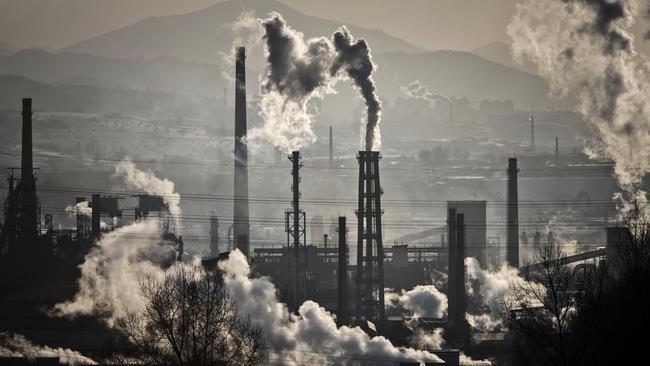Rio Tinto urges shareholders to vote against resolution requiring it to reveal emission targets at AGM
Rio Tinto has urged investors to vote down an activist group’s resolution calling on it to cut the emissions of its end users.

Rio Tinto has rejected a climate change resolution from shareholders which called for the global miner to cut carbon emissions used by customers of its commodities such as steelmakers.
Activist group Market Forces called for Rio (RIO) to divulge its short, medium and long-term targets for greenhouse gas emissions consistent with the Paris agreement to limit global warming to well below 2 degrees above pre-industrial levels.
The resolution covers so-called Scope 1 and 2 emissions — which Rio produces when mining and delivering its commodities to market — but also Scope 3 emissions which cover the various uses of the raw materials by the buyers and users of finished products like steel.
Rio recommends shareholders vote against the resolution at its upcoming annual general meeting, noting it cannot practically provide Scope 3 emissions given they are determined by its customers over which they have little control.
“Scope 3 emissions are primarily the emissions of our customers, mainly steel makers in China, over which we have very limited control,” Rio’s chairman Simon Thompson said. “Options exist for the reduction of these emissions, but the speed, economic viability and ultimate deployment of these technologies lie within the control of our customers, not Rio Tinto. We will provide scenarios for the speed and effectiveness of these abatement measures, but we cannot provide specific targets.”
The miner plans to issue new targets for Scope 1 and 2 emissions in 2020, noting ongoing engineering, economic and policy analysis work on an asset-by-asset basis to inform its new reduction targets.
“Rio Tinto is committed to being be part of the solution to address the challenge of climate change and is aiming for a substantial decarbonisation of its business by 2050 as part of the transition to a low carbon future. Our new targets from 2020 will reflect this ambition,” Mr Thompson said.
Market Forces’ request for Rio from 2020 to report annually on its transition plans to 1.5 degrees was also not supported because the miner said it’s working to a less than two degrees scenario set by the International Energy Agency.
“The analysis that currently underpins our work to set the new targets is predicated upon a less than 2°C scenario, reflecting the International Energy Agency’s Sustainable Development scenario — but not the more recent 1.5°C scenario outlined by the Intergovernmental Panel on Climate Change in their 2018 Special Report,” Mr Thompson said. “We will continue to evolve our scenarios and analysis over time, in line with the IEA’s ongoing work.”
The resolution will be voted on at Rio’s annual general meeting in Perth on May 9.
Rio last year warned climate change is the biggest threat to the viability of its business and said the sale of its coal operations had given the miner a point of difference with its rivals.
The resources player has previously linked its call to exit coal as one influenced by the implications of climate change on coal supply and demand and said it views that decision as a marker for investors looking for a point of difference.



To join the conversation, please log in. Don't have an account? Register
Join the conversation, you are commenting as Logout